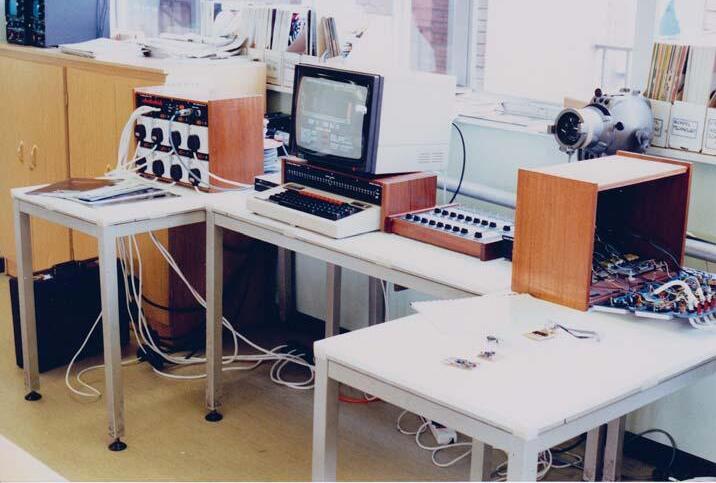
2 minute read
FROM THE ARCHIVES
BY LOUISE PIFFERO (STAFF 21-PRESENT) ARCHIVIST
As always, The Novocastrian is an excellent resource for tracing the early days of the Computer Society. Its origins go back to the Electronics Society set-up in 1958 – ONs may recall from Issue 76 of the magazine that members of the Society built RGS’ first computer in 1968. Computer Soc was then launched in 1969.
Advertisement
We hold the archive of William G ‘Bill’ Elliott (Staff 52-88), a significant collection of papers, photographs and objects relating to all aspects of his time here at RGS. As Head of Technical Studies, Bill was involved in the early days of introducing computers to the school. We also hold records from his successor to Head of Department, Mike Barlow (53-63, Staff 79-95), who built on this work. Both their archives provide a fascinating insight into an event that has gone down in RGS history.
In 1980 two RGS Sixth Formers won the BBC Young Scientist of the Year award, the second time the school took the top prize.
Anthony McKay (71-81) and Graeme Harker (70-81) developed a computerised lighting control system. Their innovative work was used in our theatre, improving efficiency for setting lighting during shows.

We hold the original report submitted by the students for their project, complete with meticulous diagrams. There is also a wealth of fantastic photographs, showing the computer set-up, the students and documenting their trip to the BBC for filming.
Anthony McKay remembers the competition well:
“The day before BBC came to film at the school, we were having technical problems with the dimming electronics. Graham and I ended up staying on in the Physics Lab into Friday evening trying to resolve the issues. Physics teacher FJM Lindsay (Staff 67-87), stayed with us. We ended up working through the night. Mr Lindsay slept overnight on one of the wooden benches. BBC turned up Saturday morning to film and we’d got it all working!”
“The whole competition was the most amazing experience and great fun. No school had ever won this competition twice so it was also huge kudos for RGS.”
“A real highlight for me was getting to hold the trophy which was the actual induction coil that Michael Faraday had made when he discovered electricity.”
Graeme Harker also looks back:
“We were very relaxed (perhaps too relaxed) because the Toon RGS had won BBC Young Scientist of the Year the previous year (with a crazy hovercraft) so we assumed there was zero chance the BBC would let the same school win twice in a row.
It amused us that the Oxbridge judges didn’t know what to ask us ‘cos microprocessors and digital electronics weren’t on the curriculum in those days so the Oxbridge professors had to ask us what to ask us on telly (to seem like they were asking relevant questions)!”
“We did feel like pioneers (it was only a few years after the release of Steve Wozniak’s first Apple computer) but we had no idea how huge this technology would become.”
The RGS Archives receives a steady stream of donations from Old Novos throughout the year.
By summer 2022 we already had 32 separate donations of material totalling over 13 boxes. There have been papers, publications, photographs, digital files, vinyl records, and objects.

We are so grateful to our community for contributing to the history of our school and keeping memories alive. Thank you to all our archive donors. Contact the Archive: archives@RGS.newcastle.sch.uk










